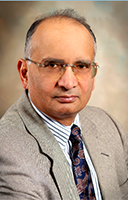
In March, the International Criminal Court decided to authorise a formal investigation by the chief prosecutor, of war crimes in Afghanistan alleged to have been committed by Afghan, Taliban, and US forces since May 2003.
The US Secretary of State attacked the judgment as ‘reckless’. The US would do ‘whatever is necessary’ to protect Americans from the ‘truly breath-taking action by an unaccountable, political institution masquerading as a legal body’.
What are the implications of this development for the geopolitics of ‘global justice’?
The decision reversed an earlier ruling in April ‘19 by a pre-trial chamber that had been criticised for buckling to American pressure. The US had threatened to put sanctions on the ICC and its judges, including prosecution in US criminal jurisdictions, if they visited the US (the site of UN headquarters). The visa of the ICC Prosecutor, Fatou Bensouda, to enter the US was revoked – an action normally reserved for the worst human rights violators.
The ICC was, at the time of creation (1998), a progressive step in consolidating the international humanitarian regime. Many of us had advocated for it and welcomed it. The Court would hold perpetrators of atrocities against civilians to international criminal account, while the sibling norm, Responsibility to Protect, would aim to protect the victims.
But the Court has drawn much merited criticism for focussing mostly on crimes committed by individuals in smaller countries, almost exclusively African, turning a blind eye to the misdeeds of powerful countries.
Bensouda had sought permission in 2017 to launch a formal investigation on alleged Afghanistan crimes after her preliminary inquiries had concluded there was a case to answer. Amnesty International said that the pre-trial chamber’s decision last year was a ‘shocking abandonment of victims’ that would ‘weaken the Court’s already questionable credibility’. Had it been allowed to stand, it would have signified the death of the ICC.
Like India, the US is not a signatory of the ICC and does not recognise its authority over citizens. Unlike India, the US is a permanent member of the UN Security Council and, in that capacity, has participated fully in decisions to refer individuals and countries to the ICC.
This makes the US guilty of gross hypocrisy. In a breach of natural justice principles, UNSC members that are not ICC states parties are permitted to vote on decisions relating to the Court. Because the UNSC can refer cases to the ICC, defer cases before the Court, and adopt resolutions to enforce Court judgments, the geopolitics of the Council contaminate the Court’s judicial processes. For justice to be seen to be done, non-ICC states parties should be legally barred from participating in all Court-related matters before the UNSC.
The ICC’s institutional integrity was compromised by the way it handled allegations of sexual misconduct against an earlier prosecutor. The most sustained criticism came from Africans who faulted the ICC for targeting only Africans, jeopardising delicate peace negotiations in Kenya, Uganda, Sudan and Libya, and disrespecting African views.
- Kenya has refused to hand over suspects to the ICC.
- The African Union adopted a non-binding resolution calling for a mass withdrawal from the ICC.
- Burundi became the first country to withdraw in 2017, while South Africa was set to follow but its High Court ruled the decision unconstitutional.
The Afghan and Israeli-Palestinian conflicts will be litmus tests of the ICC’s ability to hold powerful countries and their client regimes to international criminal account for activities that have not been adequately investigated and prosecuted in domestic jurisdictions (the subsidiarity principle).
If China or Russia rather than the US had been in the cross-hairs of a full-fledged ICC investigation and threatened its officers, the Western mainstream media would have launched full-throated attacks on Presidents X and Putin.
Because it is the United States, expect a near-complete conspiracy of silence.
Ramesh Thakur, a former UN Assistant Secretary-General, is emeritus professor at ANU (Canberra), and a Board member of the Centre. This column is adapted from an article in Times of India (11 April).

0 Comments